
Mulk Raj Anand was an Indian writer in English, recognised for his depiction of the lives of the poorer castes in traditional Indian society. One of the pioneers of Indo-Anglian fiction, he, together with R. K. Narayan, Ahmad Ali and Raja Rao, was one of the first India-based writers in English to gain an International readership. Anand is admired for his novels and short stories, which have acquired the status of classics of modern Indian English literature; they are noted for their perceptive insight into the lives of the oppressed and for their analysis of impoverishment, exploitation and misfortune. He became known for his protest novel Untouchable (1935), followed by other works on the Indian poor such as Coolie (1936) and Two Leaves and a Bud (1937). He is also noted for being among the first writers to incorporate Punjabi and Hindustani idioms into English, and was a recipient of the civilian honour of the Padma Bhushan.
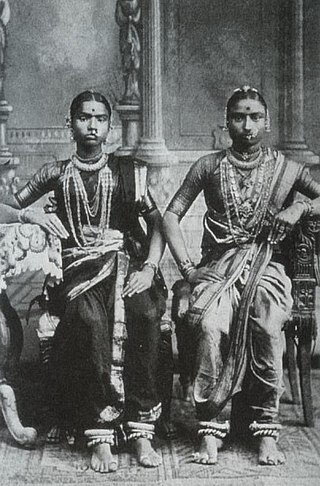
In India, a devadasi is a female artist who is dedicated to the worship and service of a deity or a temple for the rest of her life. The dedication takes place in a ceremony that is somewhat similar to a marriage ceremony. In addition to taking care of the temple and performing rituals, these women also learn and practice classical Indian dances such as Bharatanatyam, Mohiniyattam, Kuchipudi, and Odissi. Their status as dancers, musicians, and consorts was an essential part of temple worship.

The First Anglo-Maratha War (1775–1782) was the first of three Anglo-Maratha Wars fought between the British East India Company and Maratha Confederacy in India. The war began with the Treaty of Surat and ended with the Treaty of Salbai. The war, fought in between Surat and Poona, saw British defeat and restoration of positions of both the parties before the war. Warren Hastings, the first Governor-General of Bengal decided not to attack Pune directly.
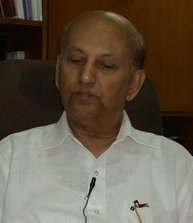
Udupi Ramachandra Rao was an Indian space scientist and former chairman of the Indian Space Research Organisation. He was also the Chairman of the Governing Council of the Physical Research Laboratory at Ahmedabad and Nehru Planetarium at Bengaluru and chancellor of the Indian Institute for Space Science and Technology (IIST) at Thiruvananthapuram. He is known as "The Satellite Man of India". He pioneered India's first satellite launch Aryabhata in 1975.
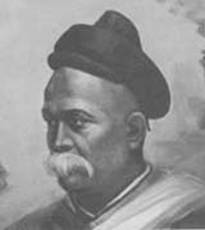
Rao Bahadur Mahadev Govind Ranade, popularly referred to as Nyayamurti Ranade , was an Indian scholar, social reformer, judge and author. He was one of the founding members of the Indian National Congress party and held several designations such as Member of The Bombay Legislative Council and Member of The Finance Committee at the centre. He was also a judge of the Bombay High Court, Maharashtra.

Belagavi district, formerly also known as Belgaum district, is a district in the state of Karnataka, India. The district is known as the sugar bowl of Karnataka with 150,000 hectares being used for commercial production. It has overtaken Mandya district in sugarcane production over the last decade. The city of Belgaum (Belagavi) is the district headquarters in Belagavi district. It houses the Second legislative building, where the Karnataka Legislature hold session once a year. The district is famous for its native sweet, Kunda. According to the 2011 Census of India, it has a population of 4,779,661, of which 24.03% live in urban areas, making it the second most populous district in Karnataka, after Bangalore Urban. The district has an area of 13,415 km2 (5,180 sq mi) making it the largest district in Karnataka, and is bounded by Kolhapur District and Sangli district of Maharashtra state on the west and north, on the northeast by Bijapur district, on the east by Bagalkot district, on the southeast by Gadag district, on the south by Dharwad and Uttara Kannada districts, and on the southwest by the state of Goa.
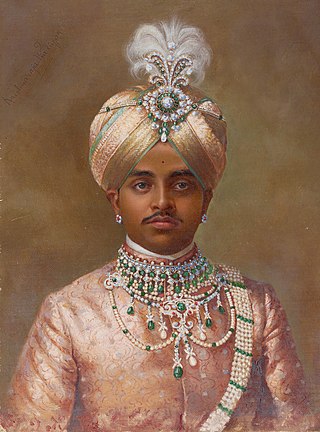
Krishnaraja Wadiyar IV (Kannada: ಶ್ರೀ ನಾಲ್ವಡಿ ಕೃಷ್ಣರಾಜ ಒಡೆಯರು; 4 June 1884 – 3 August 1940) was the twenty-fourth Maharaja of Mysore, reigning from 1902 until his death in 1940.
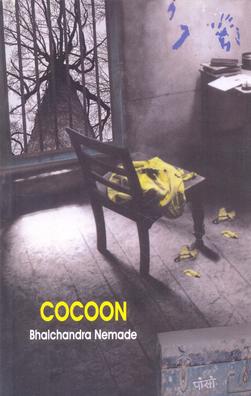
Kosala, sometimes spelled Kosla, is a Marathi novel by Indian writer Bhalchandra Nemade, published in 1963. Regarded as Nemade's magnum opus, and accepted as a modern classic of Marathi literature, the novel uses the autobiographical form to narrate the journey of a young man, Pandurang Sangvikar, and his friends through his college years.

Dr. Murigeppa Channaveerappa Modi often referred by his initials, M. C. Modi was an Indian ophthalmologist and eye surgeon.
Manikonda Chalapathi Rau was an Indian journalist and author who served as the Editor-in-chief of the English daily National Herald from 1946 to 1978. He is regarded as one of the greatest editors in the history of Indian journalism. He worked as an assistant editor of Hindustan Times early in his career and his weekly column under the pseudonym 'Magnus' was one of the most widely read in the country. During the independence struggle he was a part of the underground press movement. He was also the author of several books on Indian journalism, politics, and personalities. He was awarded the Padma Bhushan, India's third-highest civilian award in 1968, but refused to accept it.

Sir Chintaman Dwarakanath DeshmukhICS was an Indian civil servant and the first Indian to be appointed the Governor of the Reserve Bank of India in 1943 by the British Raj authorities. He subsequently served as the Finance Minister in the Union Cabinet (1950–1956). It was during this time that he also became a founding member of the Governing Body of NCAER, the National Council of Applied Economic Research in New Delhi, India's first independent economic policy institute established in 1956 at the behest of Prime Minister Jawaharlal Nehru. After resignation from Union Cabinet he worked as Chairman of UGC (1956–1961). He served as Vice-Chancellor of University of Delhi (1962–67). He was also President of Indian Statistical Institute from 1945 to 1964, Honorary Chairman of National Book Trust (1957–60).
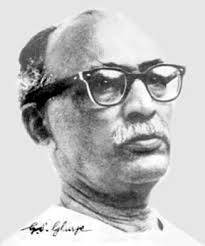
Govind Sadashiv Ghurye was a pioneering Indian academic who was a professor of sociology. In 1924, he became the second person to head the Department of Sociology at the University of Bombay. And, is widely regarded as the founder of Indian Sociology & Sociology in India.
Valipe Ramgopal Rao is an Indian academic currently serving as the Group Vice Chancellor of Birla Institute of Technology and Science, Pilani for campuses located in Pilani, Dubai, Goa, Hyderabad and Mumbai. He was previously the Director of IIT, Delhi for six years during 2016-2021.
Karnatak Lingayat Education Technological University, formerly known as B. V. Bhoomaraddi College of Engineering and Technology (BVBCET), colloquially the BVBCollege, is a private university in Hubli-Dharwad, Karnataka, India. It was upgraded to a university under the KLE Technological University Act, 2012. The school was founded by the KLE Society, Belgaum, in 1947.
Raja Lakhamagouda Sardesai (1864–1942) was an Indian philanthropist, first Barrister-at-Law from Karnataka and a ruler of Vantamuri princely state in Belagavi district. He was the 16th ruler of Vantamuri princely state. He ascended the throne at the age of 13 years in 1877. The princely state had a Wada at Vantamuri which was built by Prabhu Basavantrao and it was submerged in 1978-79 when a dam was constructed at Hidkal.
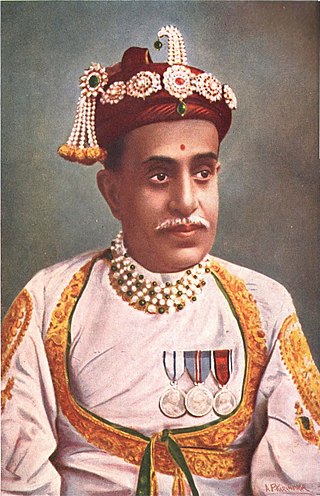
Raja Sir Raghunathrao Shankarrao GandekarKCIE, KGSJM, KECM, KGCM, DD was the 11th ruler of the princely state of Bhor of British Raj during the reign (1922–1951). During his reign, he implemented many reforms such as abolition of untouchability, freedom of association and introduction of representative government. He signed the accession to the Indian Union on 8 March 1948 which ended the separate existence of Bhor state.
Lingayat Education Association is an education institution that was established by Rao Bahadur Gurusiddappa V. Gilaganchi and Rao Bahadur Rudragouda C. Aratal in 1883 at Dharwad.
Rao Bahadur Sardar Veerabhadrappa Gunappa Desai was an Indian philanthropist, ruler of Chachadi princely state who had made significant contributions in social, religious, political, administrative, educational and literary fields. He was the 15 th Jagirdar of the Desai family. He was also a founder member of Karnatak Lingayat Education Society which was established on 11 October 1916.

Kamal Basadi is a Jain temple located inside Belgaum Fort in city of Belgaum, Karnataka.
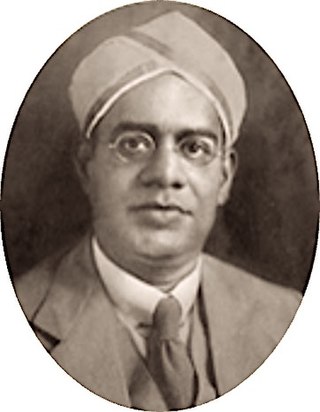
Nanjanagud Subbaraya Subba Rao was a professor of economics at Maharaja College, Mysore. He later became Principal of Maharaja College, Mysore and retired as the Vice Chancellor of University of Mysore from 1937 - 42. Subba Rao was a student of Alfred Marshall at Saint John's College, Cambridge, between 1905 and 1909 where he completed his M. A. Tripos exam and Bar-at-Law qualification. N. S. Subba Rao was a contemporary of John Maynard Keynes and Arthur Cecil Pigou and had a close working relationship with both of them for nearly two decades. Among the prominent contributions of N. S. Subba Rao are The Scouts and Guides Movement, Mysore University Co-operative Society, establishment of University and Central Libraries, Taxation Reforms both at Central and State level, Educational Reforms in the form of instituting Kannada medium of instruction in high schools, Founding of the first modern Yoga School at Mysore, Economic Reforms through his contributions at the London Round Table Conference (1930–32) along with Sir Mirza Ismail leading to the eventual formulation of the 'Indian Constitution Act' (1935) and lastly in the recruitment of future literary scholars and writers like M. Hiriyanna, G. P. Rajarathnam, S. Srikanta Sastri, Kuvempu, T. S. Venkannayya and A. R. Krishna Shastry as faculty at the nascent University.













